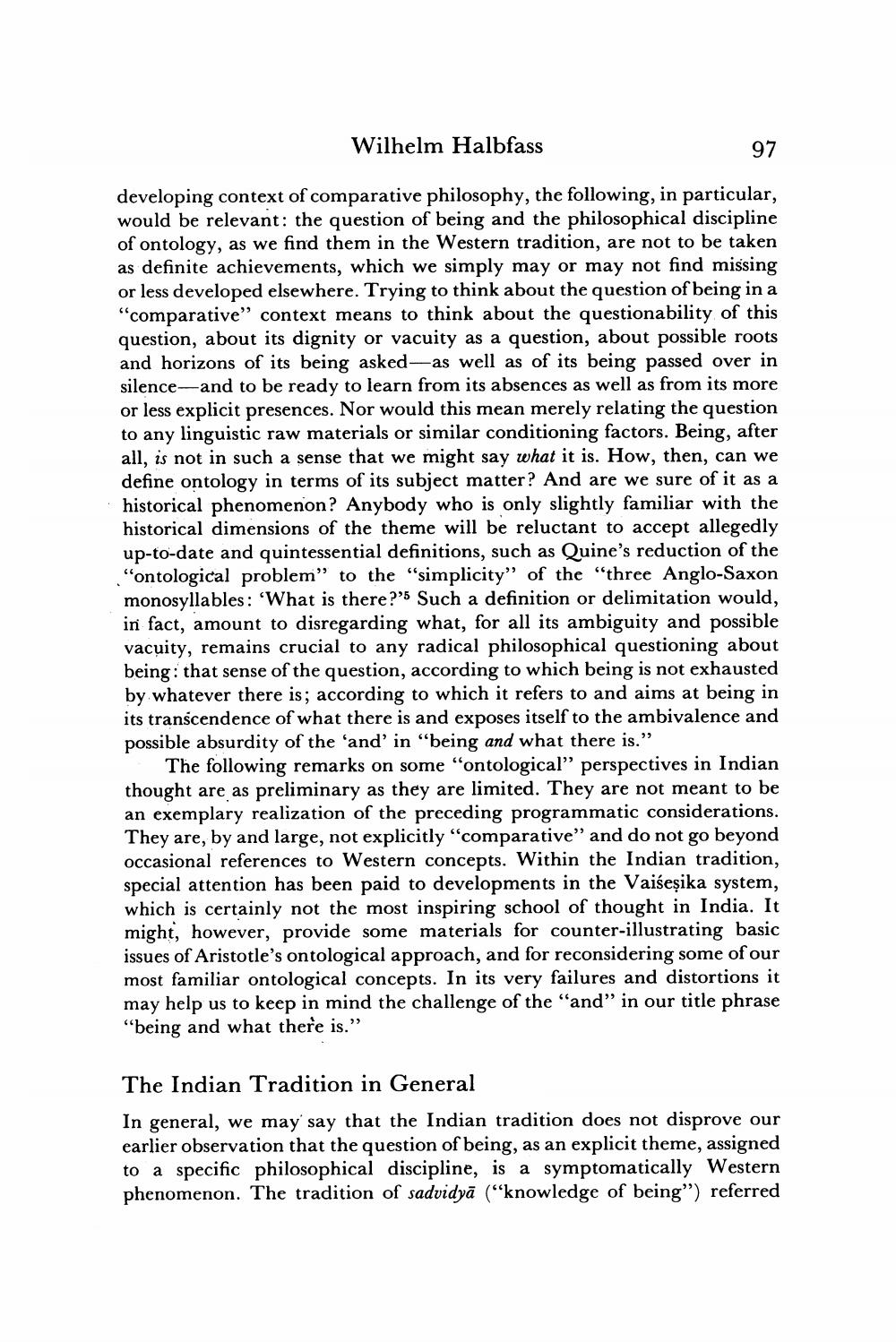________________
Wilhelm Halbfass
97
developing context of comparative philosophy, the following, in particular, would be relevant: the question of being and the philosophical discipline of ontology, as we find them in the Western tradition, are not to be taken as definite achievements, which we simply may or may not find missing or less developed elsewhere. Trying to think about the question of being in a "comparative" context means to think about the questionability of this question, about its dignity or vacuity as a question, about possible roots and horizons of its being asked—as well as of its being passed over in silence--and to be ready to learn from its absences as well as from its more or less explicit presences. Nor would this mean merely relating the question to any linguistic raw materials or similar conditioning factors. Being, after all, is not in such a sense that we might say what it is. How, then, can we define ontology in terms of its subject matter? And are we sure of it as a historical phenomenon? Anybody who is only slightly familiar with the historical dimensions of the theme will be reluctant to accept allegedly up-to-date and quintessential definitions, such as Quine's reduction of the "ontological problem" to the "simplicity” of the "three Anglo-Saxon monosyllables: 'What is there?'5 Such a definition or delimitation would, ini fact, amount to disregarding what, for all its ambiguity and possible vacuity, remains crucial to any radical philosophical questioning about being: that sense of the question, according to which being is not exhausted by whatever there is; according to which it refers to and aims at being in its transcendence of what there is and exposes itself to the ambivalence and possible absurdity of the 'and' in "being and what there is."
The following remarks on some "ontological” perspectives in Indian thought are as preliminary as they are limited. They are not meant to be an exemplary realization of the preceding programmatic considerations. They are, by and large, not explicitly “comparative" and do not go beyond occasional references to Western concepts. Within the Indian tradition, special attention has been paid to developments in the Vaiseșika system, which is certainly not the most inspiring school of thought in India. It might, however, provide some materials for counter-illustrating basic issues of Aristotle's ontological approach, and for reconsidering some of our most familiar ontological concepts. In its very failures and distortions it may help us to keep in mind the challenge of the "and" in our title phrase "being and what there is."
The Indian Tradition in General
In general, we may say that the Indian tradition does not disprove our earlier observation that the question of being, as an explicit theme, assigned to a specific philosophical discipline, is a symptomatically Western phenomenon. The tradition of sadvidyā ("knowledge of being") referred




